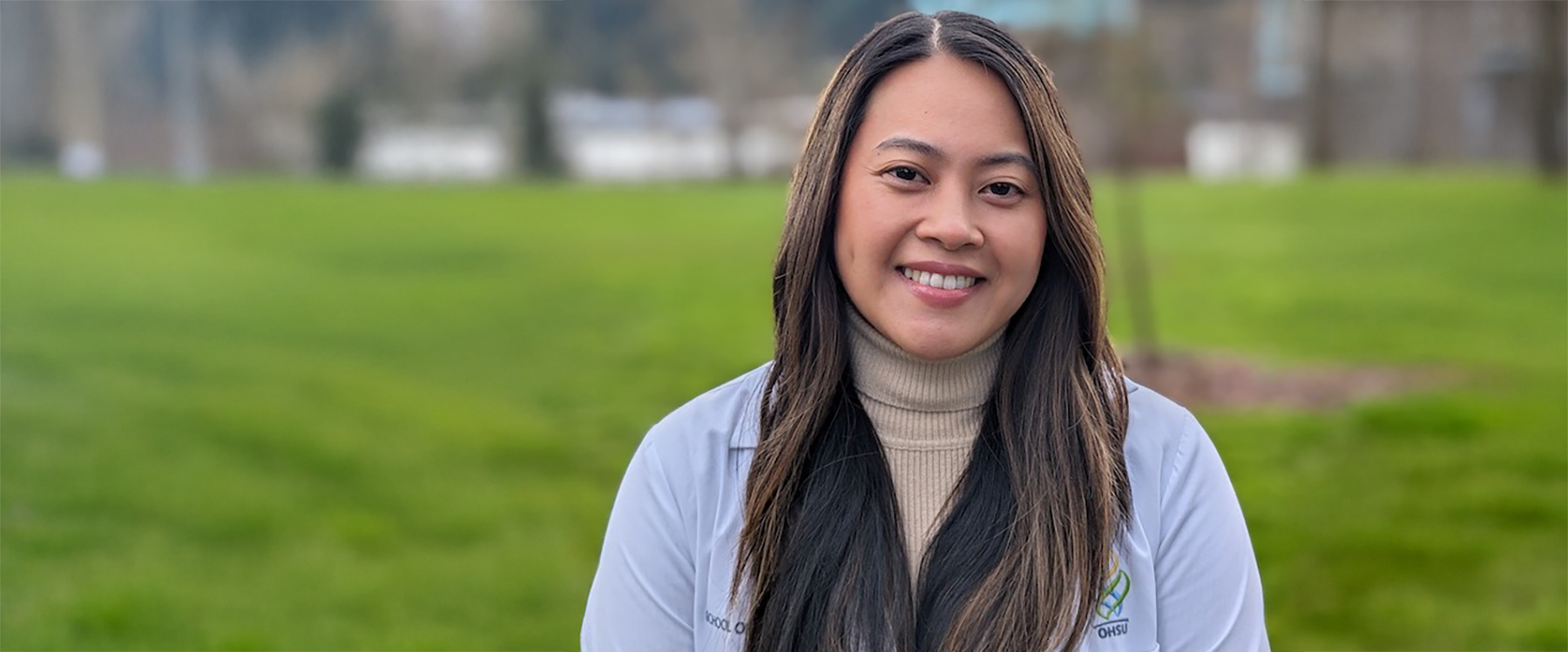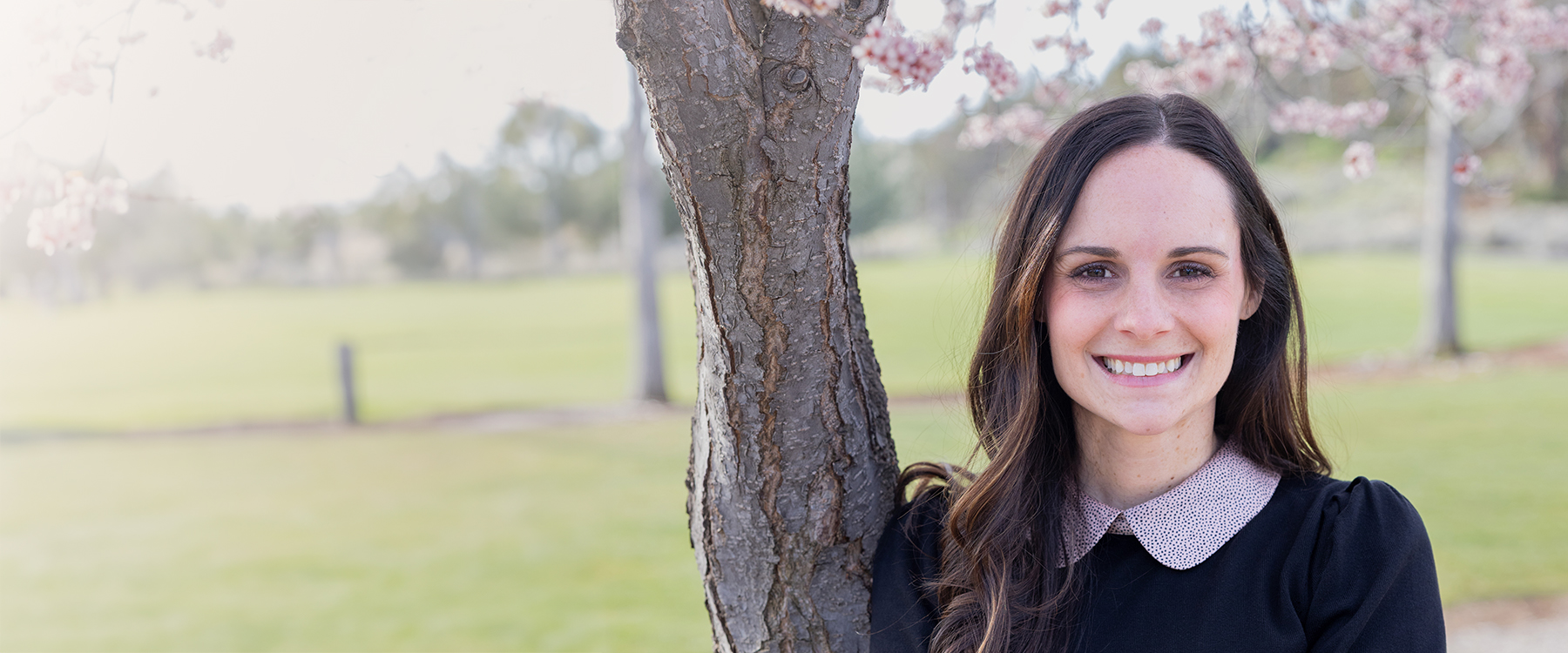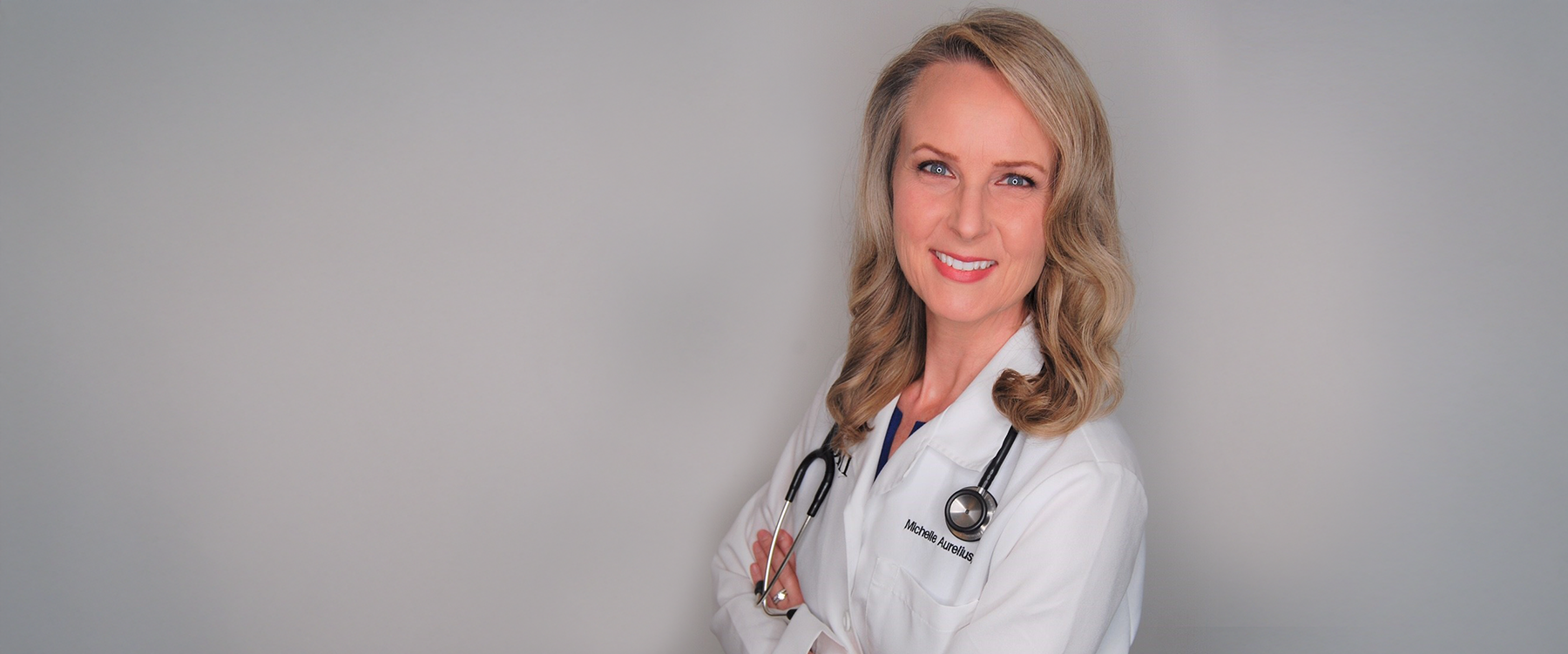Mai-Loan Nguyen, M.P.H. ’19, was 12 years old when an experience with her family’s primary care physician sparked her interest not just in health care — but in connecting with communities.
Nguyen was born and raised in Portland. Her parents had immigrated to the United States from Vietnam and practiced traditional eastern alternative medicine techniques. When Nguyen’s mom administered a common technique on Nguyen called coining, which involves rubbing a smooth-edged object like a coin over a person’s skin, staff at an urgent care clinic mistook the markings on her skin for child abuse. Their primary care physician, who was also Vietnamese, advocated for Nguyen’s family and explained the validity of the method.
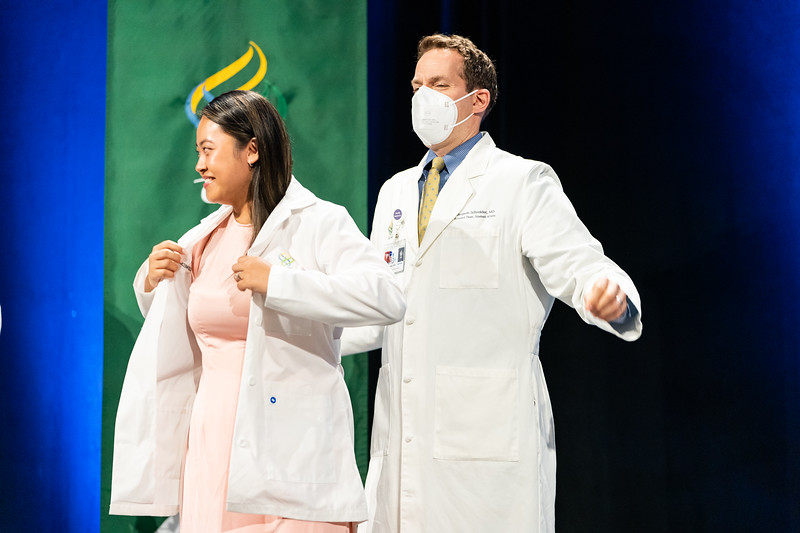
“It gave me a reality check, like, ‘Hey, not everyone understands this as eastern medicine,’” Nguyen said. “Having a Vietnamese PCP as a role model, I thought, ‘Oh, I want to be a doctor like that — that person for somebody else where they’re not judged for using other types of medicine that have been passed down for generations.”
Nguyen’s educational journey started at Santa Clara University, where she initially majored in biochemistry and minored in Spanish. An introductory public health course gave way to a global health student trip to El Salvador, which led Nguyen to add a public health major. By the time she wrapped up her four years in undergrad, she had enough Spanish credits to swap out her minor in the language for a third major.
Following Santa Clara, Nguyen returned to Portland for her first stint at OHSU as an M.P.H. student, a path laid for her thanks to the Gates Millennium Scholarship Program, which had covered her tuition for her undergraduate education.
“The Gates has seven specialties that are covered if you want to do a graduate program, and public health was one of them,” she said. “I knew that was going to help me get into medical school, something to broaden my resume. During my M.P.H. years, I learned more about not just global health, but biostatistics, epidemiology, health promotion and education. I learned how I could integrate that into a career as a physician.”
After earning her M.P.H., Nguyen spent the following year working as a public health fellow at the Providence Cancer Institute to give herself time to apply to medical school and to see if she’d be happy with a career strictly in public health. Her experience was invaluable, but Nguyen yearned to connect one-on-one with patients. When she was accepted to return to OHSU as a medical student, she knew she’d made the right choice.
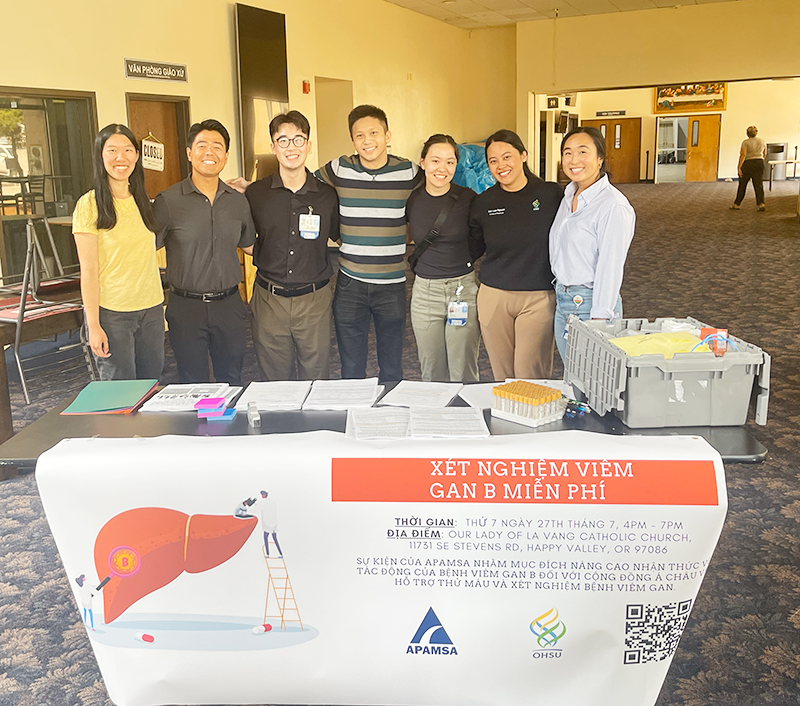
I feel like we have this camaraderie, this teamwork, a kind of attitude among our class that maybe is not as pervasive in other medical schools.”
Mai-Loan Nguyen
Her connection to her peers and faculty sets OHSU apart, Nguyen said. As a student-faculty liaison and student council president for the M.D. Class of 2025, Nguyen is able to help ensure the student body’s voice is heard.
“I feel like we have this camaraderie, this teamwork, a kind of attitude among our class that maybe is not as pervasive in other medical schools,” she said. “I’ve worked with a lot of faculty, and they’re always so open to feedback. We’ll give them ideas, and then the following year they would make those changes. Being able to feel heard and that there’s an avenue to change the curriculum and the program from a student perspective is really important.”
One of Nguyen’s major takeaways from her public health program was finding ways to empower communities through projects that have long-lasting impacts rather than ones that offer short-term solutions. To that end, she is also involved with the Asian Pacific American Medical Student Association (APAMSA), a national organization of medical and pre-medical students focused on addressing the health and wellness needs of Asian American and Pacific Islander communities. Nguyen volunteers each quarter to assist with health screenings hosted by the Korean Society of Oregon. Last summer, she volunteered at an event raising awareness about the impacts of hepatitis B on Vietnamese populations and was part of a team that submitted a grant to fund hepatitis screening panels.
“When proposing a research project, we’re always asked how something is going to be sustainable and how it will make an impact long-term,” she said. “We don’t want something where you come visit a community for a month. When I think about research, it’s more than just parachuting in, doing something and leaving.”
Nguyen is currently applying for orthopedic surgery residency and finds out where she is matched in March 2025. While she hopes to remain on the West Coast, one school sits firmly at the top of her wish list.
“I love OHSU,” she said. “It’s a school where you can make as much of an impact as you want. If you’re passionate about something, there’s always going to be a faculty member who is equally as passionate who can support you.”
